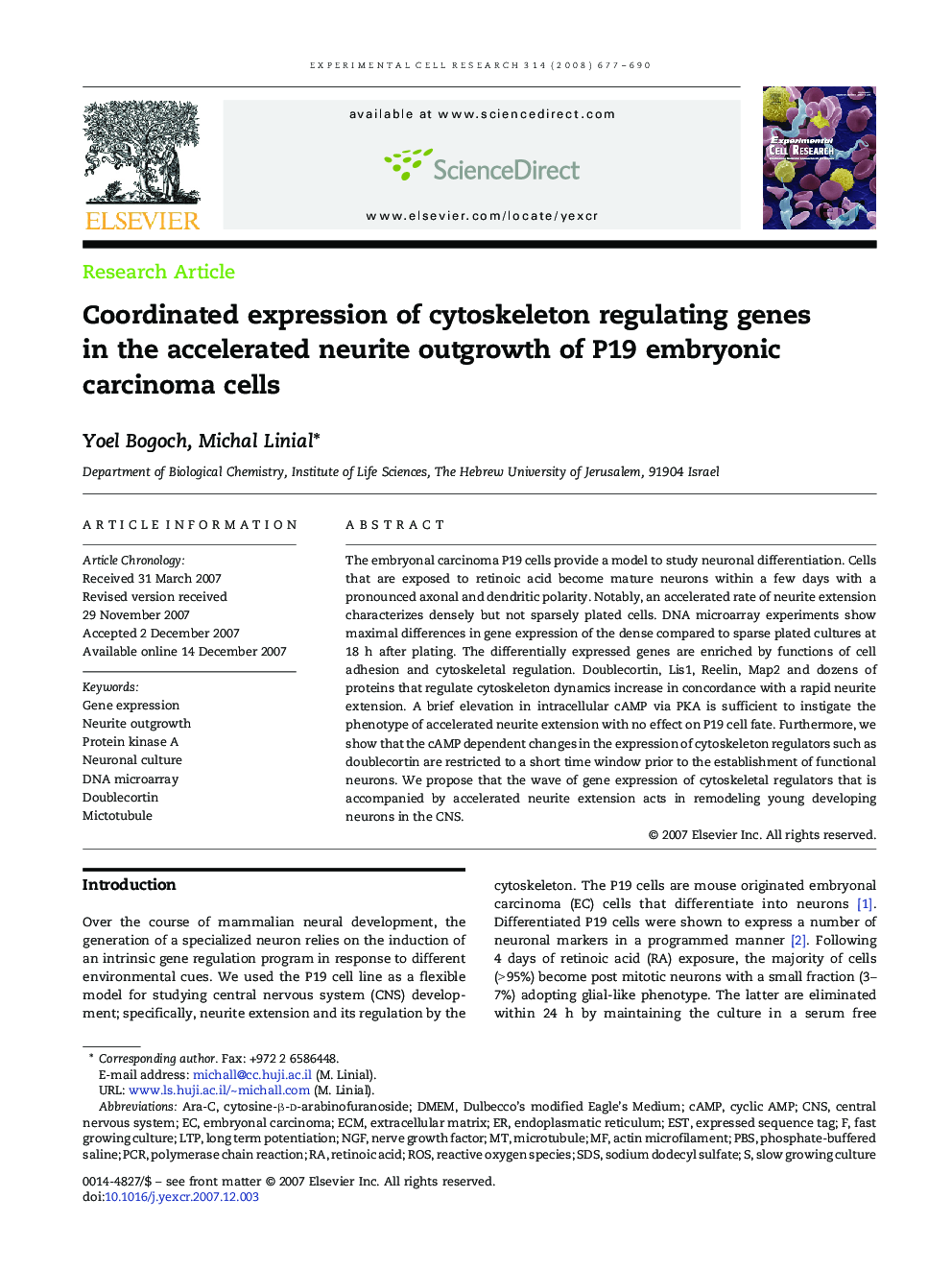| Article ID | Journal | Published Year | Pages | File Type |
|---|---|---|---|---|
| 2132321 | Experimental Cell Research | 2008 | 14 Pages |
The embryonal carcinoma P19 cells provide a model to study neuronal differentiation. Cells that are exposed to retinoic acid become mature neurons within a few days with a pronounced axonal and dendritic polarity. Notably, an accelerated rate of neurite extension characterizes densely but not sparsely plated cells. DNA microarray experiments show maximal differences in gene expression of the dense compared to sparse plated cultures at 18 h after plating. The differentially expressed genes are enriched by functions of cell adhesion and cytoskeletal regulation. Doublecortin, Lis1, Reelin, Map2 and dozens of proteins that regulate cytoskeleton dynamics increase in concordance with a rapid neurite extension. A brief elevation in intracellular cAMP via PKA is sufficient to instigate the phenotype of accelerated neurite extension with no effect on P19 cell fate. Furthermore, we show that the cAMP dependent changes in the expression of cytoskeleton regulators such as doublecortin are restricted to a short time window prior to the establishment of functional neurons. We propose that the wave of gene expression of cytoskeletal regulators that is accompanied by accelerated neurite extension acts in remodeling young developing neurons in the CNS.
